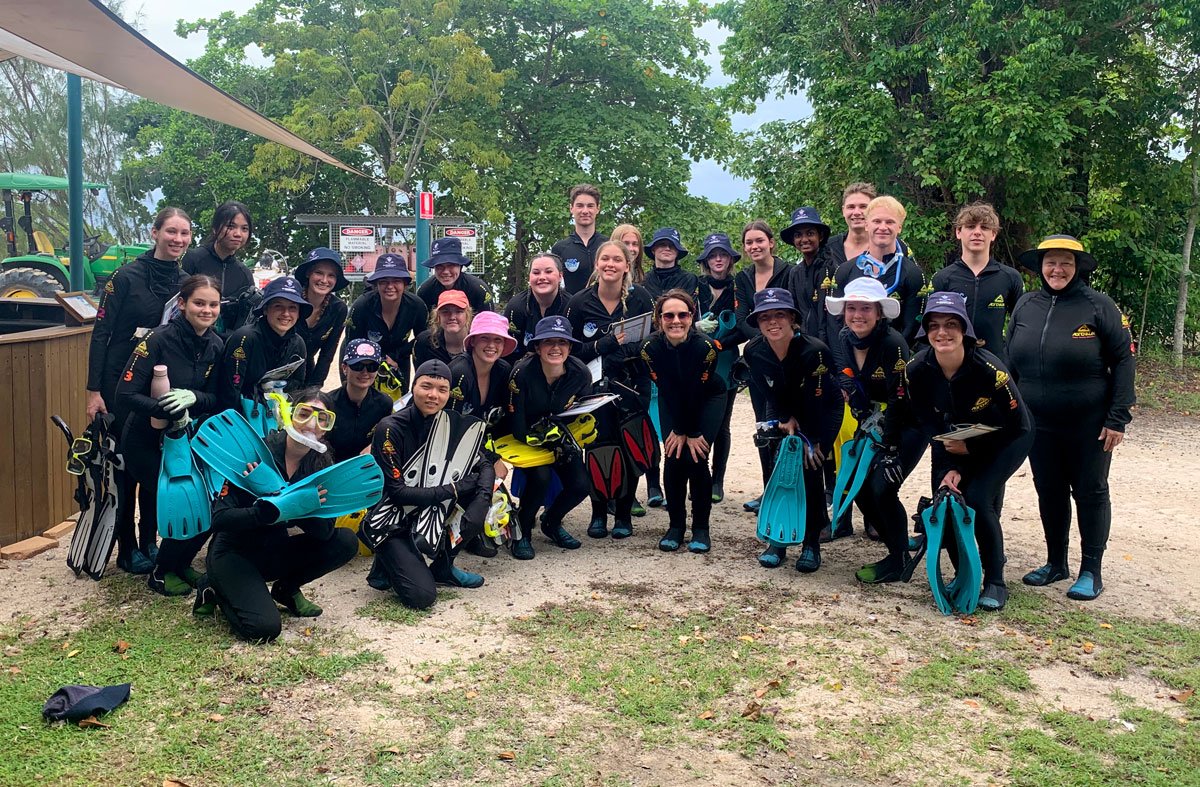Each year, the Year 12 Biology students set out on a three-day field trip to Orpheus Island to study the ecosystem, basing themselves at JCU’s Research Station.
Story by James Haydon, Emily O’Callaghan & Sara Jalaleddine.

‘From the 16th to 18th of February, the Year 12 Biology students were enjoying the outdoors, using transects and quadrats to collect data in a Fringing Coral Reef Flat Ecosystem. This was one of the many activities that were planned for us.
Our camp to Orpheus Island began at 4am on Thursday the 16th of February. The alarm clocks went off and we raced to get ready to be at school by 5am. It was pouring rain. This was making our teachers, Mrs Smith, Mrs Morrison and Mr Farrell very concerned. However, we persisted and packed the bus ready to leave for Lucinda. The boat ride from here was eventful – well it depends on which boat you got to ride. Mr Farrell’s group had it easy, 50mins of travel and they had arrived at the JCU Orpheus Island Research Station. Unfortunately, the rest of us were left to a 90min trip and it was a rough ride!’
‘The itinerary was jam packed – arrival, induction, unpacking, and by 11am we were already seated in the lecture theatre starting our first lesson. We connected with Dr Allison Paley, a Marine Biologist and researcher in the fields of coral biology and coral eco-physiology. That afternoon we completed our first snorkel off Pioneer Bay. We were all given a different area to survey, across deep, mid, and shallow waters.
We ran 10m transects out under the water and collected data on four different coral forms. While we had a lot of fun being in the water, we were really tired at the end of the first day. However, our itinerary indicated that there was more on the agenda for the evening! We worked in groups to cook the meals and at night one was spaghetti, a crowd-pleaser.
By 7.30am on the Friday, we were already in stinger suits ready for the next snorkel- this time we got to go out in the boats and collect data in a different bay. After a quick lunch, we spent the afternoon exploring the reef flat – collecting data in two different habitats, mangroves, and the sandy flat. Part of this involved us looking for mudskippers and shrimp-goby burrows. This was a lot of fun.
Our last night ended with butter chicken and hard-boiled rice – we had located a rice cooker for this meal but it decided to break halfway through the cooking process. This meant rice was heated up in smaller amounts using the microwave – it is safe to say the rice was not the tastiest thing on the menu. With all that said, we had a great experience. It was really awesome to be able to connect with Dr Paley in the field and then be able to collate all of our data as a cohort.
If you do Senior Biology – this is an opportunity you do not want to miss. We would really like to thank all of the staff for their work in organising the trip.’
